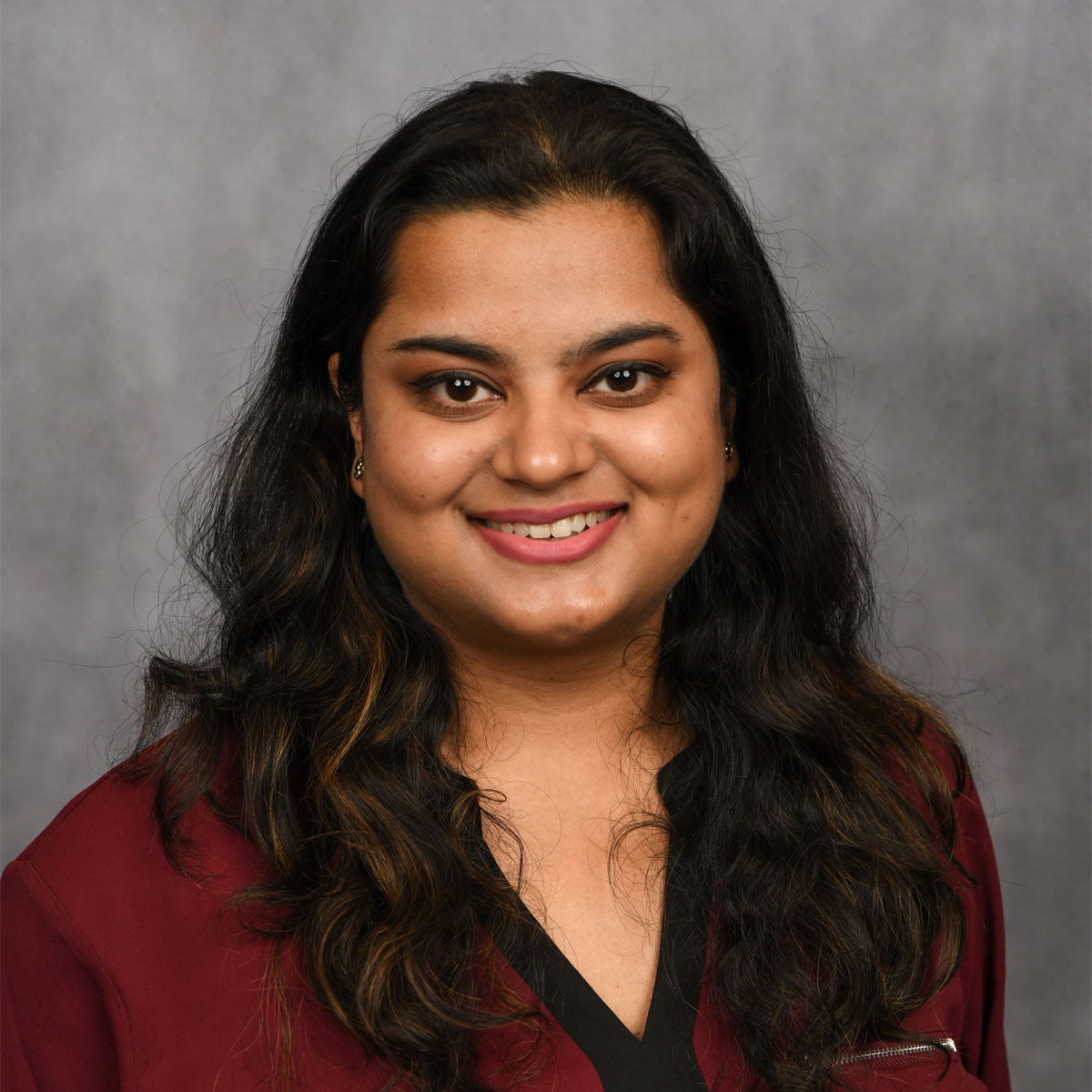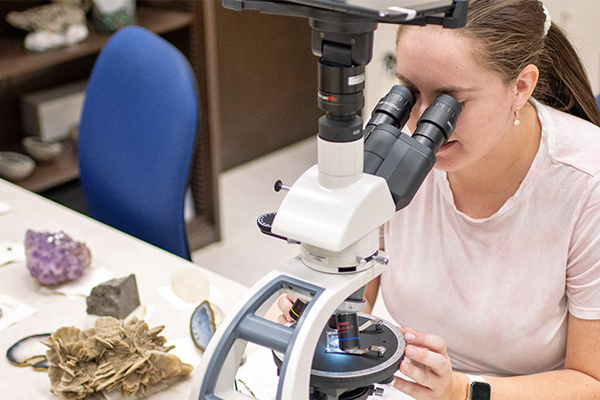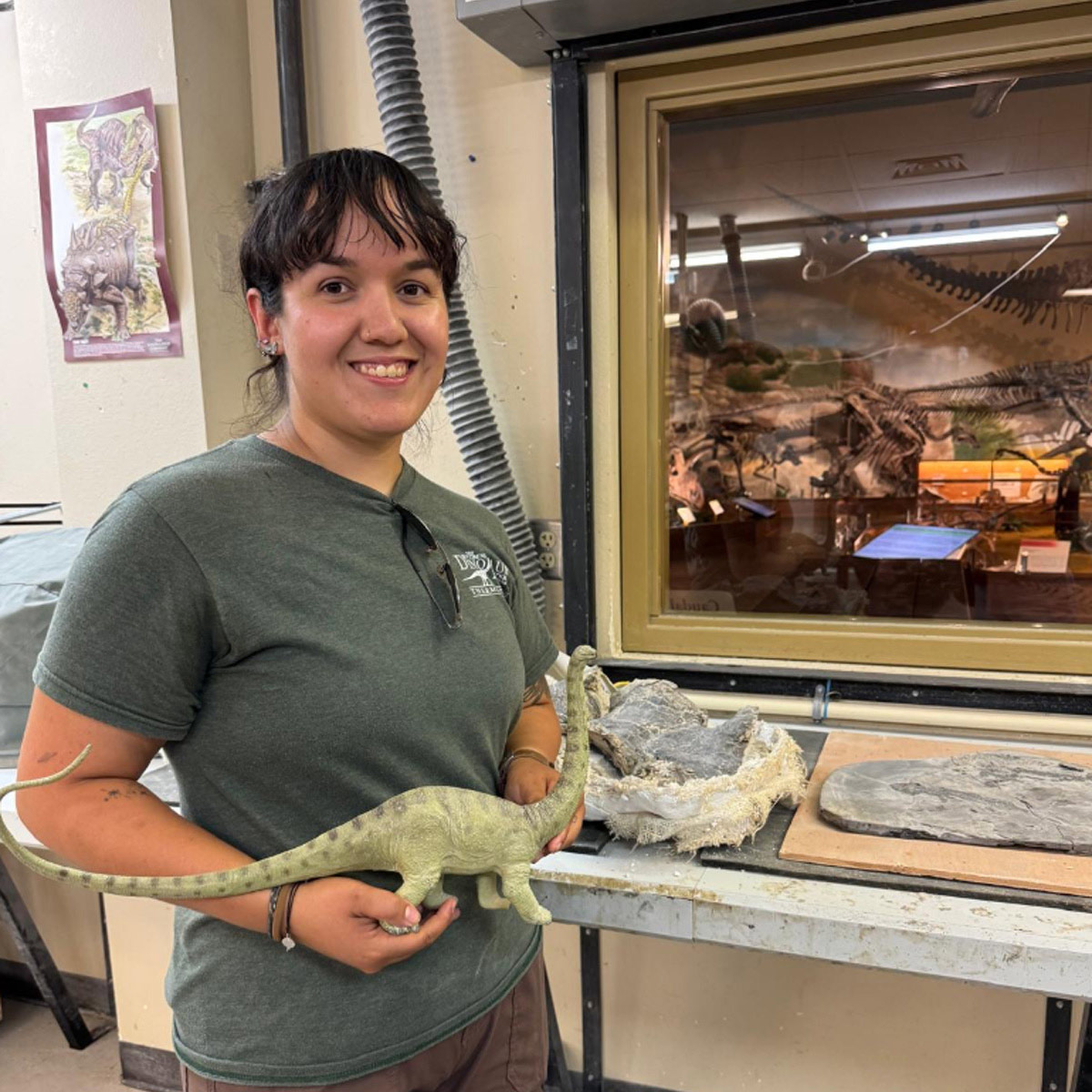Posted on January 12, 2024 by College of Sciences

Mansi Joshi, Environmental Science and Engineering Ph.D. Student
By Ryan Schoensee, Senior Communications Specialist
Meet Mansi Joshi '25, a PhD candidate and researcher in the Department of Earth and Planetary Sciences at UTSA.
Mansi began her academic journey at UTSA during the peak of the pandemic in 2020. She completed her first semester online from her hometown of Mumbai, India, before relocating to the United States to continue her education. Her first supervisor and Associate Professor of Research at UTSA, Stephen Ackley, was an influential factor in her decision to attend UTSA. It also happened that the Center for Advanced Measurements in Extreme Environments (CAMEE) was established at the same time she started, which further convinced Mansi to become a Roadrunner.
"When I received the email of acceptance, I did not hesitate to accept the offer."
Mansi's field of study focuses on remote sensing and sea ice, with her research being centered around Antarctic Sea ice using various satellite datasets that help her delve into the mechanisms behind changes in the sea ice. The destruction of polar ice through anthropogenically-driven factors can cause habitat fragmentation and sea level rise, both critical environmental issues.
Mansi is the first woman in her family to pursue a PhD. During her master's program in 2017, she gained valuable experience through an internship at the Indian Space Research Organization (ISRO), which served as a catalyst for her pursuit of higher studies. Currently, Mansi is lending her expertise at CAMEE where she conducts research and gives presentations.
Last May, Mansi was selected from a pool of applicants to attend an NSF funded field school at Canadian High Arctic Research Center (CHARS) in Nunavut, Canada to learn different techniques to measure the physical attributes of sea ice in the field.
"It was a great experience," said Mansi. "I got to learn about my topic of interest while being in the field." She had previously studied sea ice using satellite images, but the hands-on approach in the field gave her a different perspective. It also helped her understand the logistics and planning required to successfully carry out fieldwork. The last project of the school year tasked students with creating an experimental design, which they were expected to carry out successfully and present on.
"Not only is higher education good for learning, but also networking," says Mansi. "We all work on different aspects of sea ice, but we often collaborate. This develops a sense of community, and I get to explore the interdisciplinary approaches to problem solving."
Currently, she is a Future Investigator in NASA Earth and Space Science and Technology (FINESST) fellow and has received funding for her project "Analyzing Sea Ice Formation, Growth and Deformation in the Weddell Sea, Antarctica Using ICESat-2." This fellowship offers research grants for up to three years at up to $50,000 per year.
In the future, Mansi wishes to continue her research on sea ice and remote sensing for a research institution. It is her hope that she would lead a project as a principal scientist, and that she can continue to carry out her goal of shedding light on the scientific intricacies surrounding polar ice for the broader public, given the paramount significance of the issue and its effect on ocean ecosystems.

Explore the EPS Department!
With research centers such as the Center for Advanced Measurement in Extreme Environments and the Institute for Water Research, Sustainability and Policy, students have access to diverse research opportunities to foster their education.
Recent EPS Spotlights
View More Spotlights



